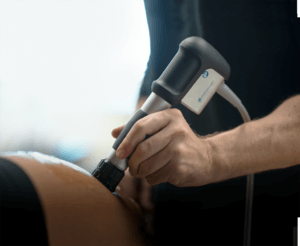Do you deal with chronic pain or inflammation in your daily life? It isn’t uncommon, but it is avoidable. While exercise is a crucial part of your physical therapy regimen, proper nutrition can also play an important role. The foods you eat work to fuel your body, and eating the right ones can help you recover much quicker from painful or uncomfortable conditions. Exercising regularly, reducing your stress intake, and keeping a strict nutritional diet all work together to help limit and alleviate your pain and inflammation. For more information on how nutrition can help you, contact Wellbridge Physical Therapy in Bedford, NH to schedule an appointment with one of our physical therapists.
Why we experience inflammation:
Your immune system can naturally respond to injury, ailment, or other harm through inflammation. If you have an infection, wound, tissue damage, or buildup of toxins in your body, the immune response is triggered to deal with it. Without inflammation, injuries wouldn’t be able to heal; however, if this process goes on for too long, chronic inflammation can occur. This can lead to serious health conditions, such as arthritis, diabetes, heart disease, or even some cancers. If you experience persistent pain, it is wise to contact a physical therapist as soon as possible, as it may mean that the inflammation has become chronic.
Traditionally, chronic inflammation has been treated through strict rest and medication. However, a lack of exercise can actually make inflammation worse, as it constricts joints and causes muscles to stiffen. Additionally, medications come with a whole slew of side effects, some of which can be dangerous and/or habit-forming. Luckily, pain and inflammation can be treated in much easier and healthier ways – such as diet.
Beat inflammation with a nutritional diet!
Nutritionists have had patients report great success in turning around their symptoms by adopting an anti-inflammatory diet. Inflammation is your body’s way of trying to heal, which can be accelerated through a nutritional diet that complements the removal of toxins.
The three basic components of an anti-inflammatory diet are:
Lots of veggies!
Raw broccoli, Brussels sprouts, cauliflower, and cabbage are the best options when sustaining an anti-inflammatory diet. They can be cooked if you prefer, but raw vegetables are generally better for speeding up the inflammation process. You’ll want to eat up to nine servings per day, and you can substitute fruits for a couple of those servings to break it up, if it becomes too much. Otherwise, the timeless saying “eat your veggies,” is key.
Take it easy on grains and dairy.
In order to strengthen your body’s immune response, you’ll want to avoid simple carbs and sugars. Unfortunately, that means no donuts, no pastries, and no white breads. Dairy products should also be extremely limited, so very little cheese or milk with anything. Whole grains, such as barley, oats, brown rice, and wheat are best.
Avoid red meat altogether.
It is best to avoid red meat while participating in an anti-inflammatory diet. If this proves difficult, red meat is okay in small doses; however, it should be an extremely rare treat in your diet. The proteins in red meat require extra work from your kidneys to process, so it will slow down the healing process if you eat a lot of it. One small piece of steak, one time per week, should be your maximum limit. Luckily, chicken and fish are just fine for an anti-inflammatory diet. Enjoy them with all of those servings of vegetables!
More helpful tips:
If you stick to the diet listed above, you should see your pain and inflammation symptoms start to reduce very quickly. In addition to a nutritional diet, you can also help fight inflammation through:
Weight loss: If you have some unwanted weight, getting down to your ideal body weight will help with your pain and inflammation.
Stress management: If you’re feeling mentally stressed, your body can become physically stressed – causing more inflammation and a longer recovery rate. Taking time to relax can actually allow you to heal quicker!
Daily exercise: Exercise will keep the muscles warm, which can alleviate pain or stiffness, and stop the inflammation from becoming worse.
Contact Wellbridge Physical Therapy if you’d like to speak with a physical therapist about pain management or additional advice on how to reduce inflammation!
Tags: Health, Physical Therapy, Physical Therapist, Reduce Pain, Nutritional diet, Stress management, Pain Relief, Chronic Pain






